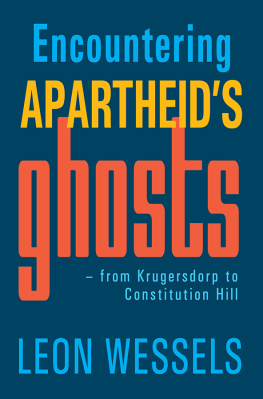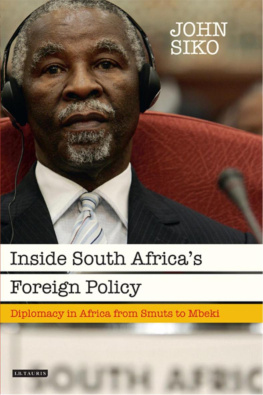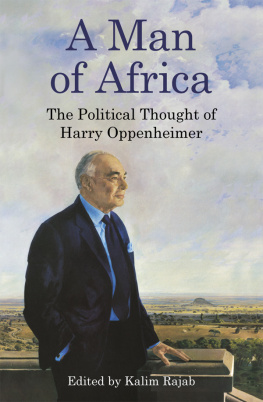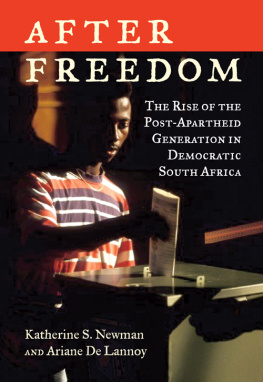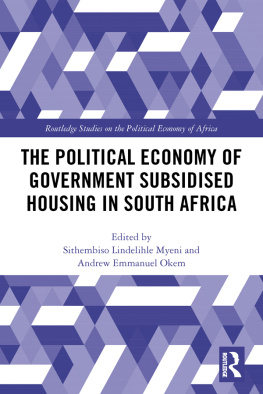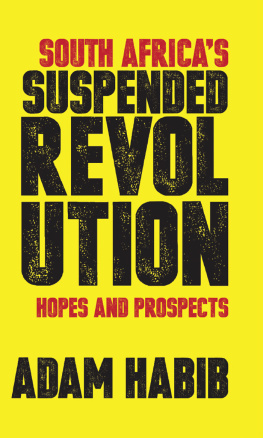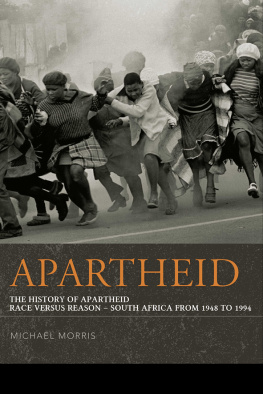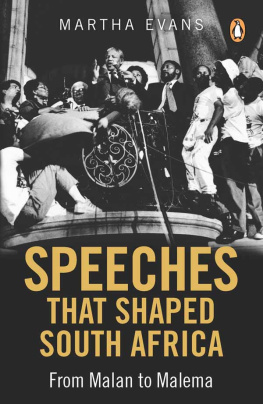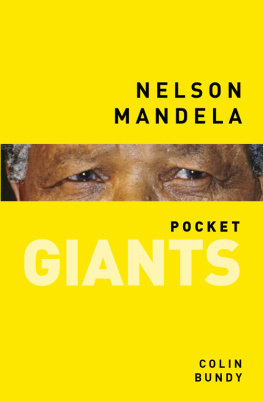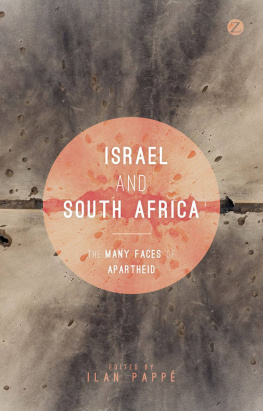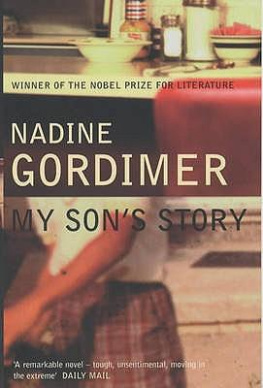PREFACE

L eon Wessels has published an accomplished and deeply introspective memoir of his life in our modern times. Wessels reflects an extraordinary journey of an ordinary South African in apartheid South Africa. The story is told with pathos not in the sense of evoking pity but in the sense of drawing the reader to his feelings, reasoning, calculating and yet very sincere. Amazingly, his telling of his tale is tinged with humour, sensitivity and understanding. He captures ones imagination from the beginning to the end and keeps the reader engrossed on his pilgrimage as a fellow-traveller, almost. The book, Encountering Apartheids Ghosts: From Krugersdorp to Constitution Hill is a tour de force that provides to the uninitiated a cameo of life from the inner sanctum of apartheid-dom to the making of our Constitutional democracy and beyond.
Leon Wessels, to any who know him, is a larger than life character. Tall, robust, emphatic in speech, perspicacious, intelligent and yet he is down-to-earth as so many of his encounters in this book show. Born into a humble family with a policeman as a father in the idyllic surroundings of a working-class rural Afrikaner household: the Dutch Reformed Church, Afrikaans-medium schooling, SA Police College and the Potchefstroom University for Christian Higher Education (PUKKE). Yes, Wessels was steeped in Afrikaner folklore, culture and traditions. He occupied a ringside seat in the events that unfolded towards the making and unmaking of Afrikaner consciousness.
On or about 12 September 1977 I was detained at the Baakens Street Police Station cells in Port Elizabeth, in terms of Section 6 of the Terrorism Act. I was aware that Steve Biko was detained elsewhere by the same security police who were supposed to interrogate me. On this day, however, upon opening the doors of the cell, I found that a new police guard had been placed at the cell. He was a young white police constable, barely 18 years of age. Upon seeing me he exclaimed, with genuine surprise, Meneer die Prokureur, hulle het vir my ges dat daar n baie gevaarlike terroris hier is. He reminded me that he was a court orderly at the Magistrates Court where I used to appear at that stage as a candidate attorney. The young man could not believe his eyes. He just could not believe what he had been told by the security police.
He was a kindly soul. He treated me with considerable respect. He made a point of buying the English newspaper even though he read the Afrikaans daily. He gave me some latitude about exercise. Being held in solitary confinement incommunicado , I was not allowed newspapers to read and no contact with the outside world. The young man was too embarrassed to be the one who kept me locked up. It was through him that I got to know that Steve Biko had been murdered by the security police the same ones that he was accountable to. He sympathised deeply upon recognising that I was distraught at the discovery. I am sure he never knew anything about who Steve Biko was and why and how he had died. He only knew that I was a lawyer that he held in high regard.
To my shame I never knew this young mans name, and in the new South Africa I doubt that I have ever met him. In my minds eye I am dying to meet him again an Afrikaner young man who showed kindness to a terrorist. I believed then as I do now, that among Afrikaners as human beings are such as would qualify for Lady Macbeths depiction of her husband:
Yet do I fear thy nature,
It is too full o th milk of human kindness
To catch the nearest way.
(Act 1, scene 5)
In such situations when cruelty of unimaginable inhumanity was a toy thing, a young Afrikaner man, barely past his teens and in uniform could find it in himself to be a human simpliciter .
My connection with Wessels begins at the point where he gets involved in the Afrikaner Studentebond (ASB) in the 1970s having first served as the President of the SRC at Potchefstroom. We coincide only slightly because at the time I was first President and later in 1971 Secretary-General of the South African Students Organisation (SASO). As SASO we had no inclination to be associated with the ASB. In January 1971 Steve Biko and I were invited by the late Prof HW van der Merwe of the Abe Bailey Institute for Inter-group Studies based at the University of Cape Town to attend a seminar on student perspectives examining, I suppose, issues of race and political change in South Africa.
This was to be the occasion where three national student organisations would not only be in the same conference room together, but that they would also listen to each others presentations and debate issues in a manner that was unique for that time. Steve and I thought long and hard as to whether we wanted to take part in this adventure. We consulted comrades and we received mixed reactions. In the end we decided to participate. We did so because we saw this as an opportunity to place SASO and Black Consciousness on the political map of the country. It did.
I recall that at this seminar the ASB was represented by its senior leaders at the time led by Johan Fick, then President of ASB. Also present were independents like Michiel le Roux from Stellenbosch. We accepted an invitation from Neville Curtis, President of NUSAS, to stay at his flat in the southern suburbs of Cape Town during our stay there. That same night we were arrested in the early hours of the morning and charged under the pass laws. We were later released, how we never knew. If ever there was a circumstance that dramatised our difference, that was it. It also set the tone for our respective contributions at the seminar. Otherwise I do not have a great memory of any encounters with the ASB or even NUSAS. We stated our case and we were uncompromising. Our papers were reported in the press and this caused much consternation in the media. The papers were published in a book of essays STUDENT PERSPECTIVES edited by David Welsh and HW van der Merwe. I have never been able to tell whether the encounter contributed in any manner to the perspectives of the ASB leaders who attended. For us, I can say confidently that it made no difference but it may have unsettled the ASB colleagues.
Years later I had the privilege of serving with Leon Wessels in the South African Human Rights Commission. Leon came into the Commission and fitted perfectly into the ethos, often argumentative, intellectually robust debates that were a feature of the Commission at the time. He brought a passion for human rights law, experience in both legal practice and in politics and he also came with an inquiring open mind. More than that, he was never a former Minister sitting on a high horse and unable to sympathise with our sensitivities and proclivities. Even more important, Leon was not defensive about his past and about the National Party, neither was he uncritical about political developments in our time when there was need to.
I had the signal honour of spending many early mornings with Leon at the Commission at our Isle of Houghton offices over coffee. Both of us were habitually the earliest to arrive at the office daily. We had opportunity to share news and perspectives about everything from home and family, work and play, as well as the academic research he was then undertaking. More importantly, we debated many aspects of the law and politics and we developed strategies for undertaking the work that was necessary for the Commission. We named our frequent trysts, The Early Morning Coffee Club that had only two members! Whereas in 1971 Leon Wessels and I would have occupied different or divergent scales of the pendulum, by 1999 together we were exploring how best we can contribute to make our democracy function optimally. In that sense we became comrades and partners in nation-building.

